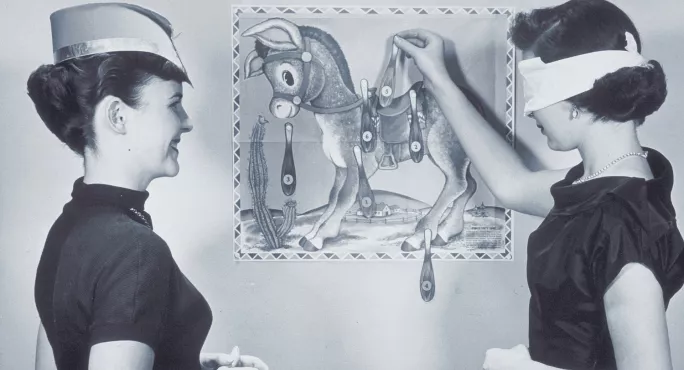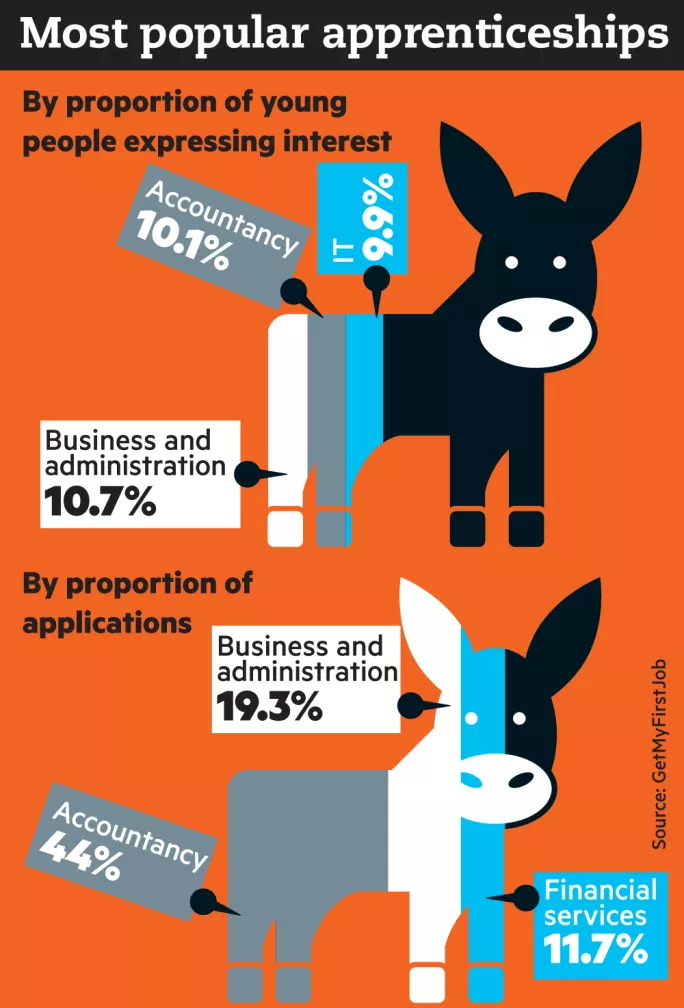- Home
- Young people let down by poor careers advice
Young people let down by poor careers advice

A profound mismatch exists between apprenticeship vacancies and the areas young people want to work in, according to new data calculated for TES.
Analysis by apprenticeship matchmaking platform GetMyFirstJob reveals that many end up applying for roles in sectors they had not previously expressed any interest in.
Experts have said that this highlights the lack of confidence among many young people when it comes to selecting a career as well as the need for a more effective advice system.
Last month, TES revealed fears that, at the current rate, the target of creating 3 million apprenticeships by 2020 would be “unattainable”. Policy consultancy SQW called for drastic action to make the scheme more financially appealing to employers.
Knowledge is power
According to GetMyFirstJob, which has 270,000 prospective apprentices and trainees on its books, the proportion of young people applying for accountancy apprenticeships was four times higher than the percentage who said it was one of the five sectors that they most wanted to work in. Similarly, only half of those who applied for apprenticeships in business and administration had expressed an interest in the field (see graphic, below).
There were significant gender disparities, too. In accountancy, 64 per cent of applicants were male, while more than 80 per cent of applicants for healthcare, dental technician and childcare roles were female.
David Allison, managing director of GetMyFirstJob, which works with 500 recruiters, also highlighted striking disparities between aspirations and the regional jobs available. “We talk about the ‘Northern Powerhouse’, in a context where 64 per cent [of young people] aspire to work in a warehouse or childcare,” he said. “This is the missing piece in the skills jigsaw. If you don’t communicate [about a profession] effectively with young people, they will never want to do it. Why would a 16-year-old suddenly wake up, having never met an accountant, and want to be an accountant?”

Employers had a responsibility to make contact with young people, he added. “There is a disconnect between the apprenticeship market and the graduate market, where large firms are willing to invest in attracting the best talent.”
Competition between colleges and schools with sixth forms also made it difficult to ensure that students had access to objective careers advice, Mr Allison said.
Shakira Martin, vice-president for FE at the NUS students’ union, said it was disappointing that learners did not feel empowered to pursue different careers, adding: “With no formalised careers guidance from an early age, it’s no surprise that young people are falling back on outdated advice from parents and teachers rather than taking routes that excite them.”
The government needed to take careers guidance more seriously, she said: “The NUS has been calling for an all-ages, all-stages national careers offer. Supporting young people to fulfil their potential and choose the route appropriate to them should be at the very heart of that.”
Tackling ‘outdated snobbery’
However, Jonathan Simons, head of education at thinktank Policy Exchange, said the fact that young people were changing their career plans in the light of labour market information should be welcomed. It could be that a young person “loves horse riding, say, but rightly concludes that there aren’t many careers in equestrianism so does an apprenticeship in something else”, he added.
In 2015, the Careers and Enterprise Company was launched in a bid to improve careers advice and guidance. In January, then education secretary Nicky Morgan announced that state schools would be compelled to give vocational routes as much weight as academic options when providing careers advice, in order to tackle “outdated snobbery” against technical education and apprenticeships. No further details have been revealed.
The figures from GetMyFirstJob come only weeks after a survey by City & Guilds revealed that young people in the UK were considering only a fifth of the jobs available to them. Managing director Kirstie Donnelly said the survey highlighted the need for “real investment from government so that all areas of the UK can benefit from improved careers advice and a better understanding of the workplace”.
Mark Dawe, chief executive of the Association of Employment and Learning Providers, also called for a national, all-age careers service that “properly supports individuals with all the opportunities available”.
Keep reading for just £1 per month
You've reached your limit of free articles this month. Subscribe for £1 per month for three months and get:
- Unlimited access to all Tes magazine content
- Exclusive subscriber-only stories
- Award-winning email newsletters



